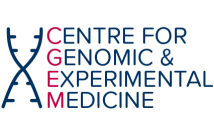International Molecular Pathology Symposium (IMPS 2017)
May 2017: Delegates enjoyed a series of excellent talks and networking opportunities from across the Molecular Pathology community.

The second International Molecular Pathology Symposium (IMPS) 2017, built on the success of the inaugural event, IMPS 2016, bringing together the academic research base, pathology and genetics NHS services, and industry, with the aim of increasing the capability and capacity of UK molecular diagnostics.
This was once again an exceptional event, with national and international leaders in Molecular Pathology, informatics, imaging and genome sciences providing excellent talks throughout the day. Organised by the Executive Committee of the MRC-EPSRC Molecular Pathology Node of the Universities of Edinburgh and St Andrews, the audience enjoyed outstanding talks from a range of local, national, and international speakers.
The symposium was opened by Professor David Crossman, Dean of St Andrews Medical School and keynote speaker Professor Adrienne Flanagan, UCL Cancer Institute, who spoke on the genomic landscape of bone tumours and their development.
Professor Tim Aitman, Director of the Edinburgh-St Andrews Molecular Pathology Node provided an overview of the Node, and the Node Network’s achievements, whilst Professor Simon Herrington highlighted the successes of the Masters by Research in Molecular Pathology. Professor Mary Porteous introduced a new training programme run by the Edinburgh-St Andrews Node, a post graduate certificate of education (PG Cert) in Molecular Pathology and Genomic Medicine. The PG Cert is aimed primarily at NHS laboratory and clinical staff and is designed for anyone wishing to expand their understanding of molecular pathology and how it applies to clinical diagnostics.
Professor Jonathan Mill, University of Exeter Medical School, gave a well-received keynote presentation on regulatory genomic variation in the human brain. The final keynote of the day was presented by Professor Jon Seidman, Harvard Medical School, who spoke on the implications for genetic diagnosis of heart disease and other Mendelian traits.
As well as the excellent programme of scientific presentations, delegates enjoyed the networking opportunities which allowed academic research leaders in molecular pathology to interact with their counterparts in both clinical and industrial arenas.

Related links
Further information on the PG Cert in Molecular Pathology and Genomic Medicine will follow soon.


